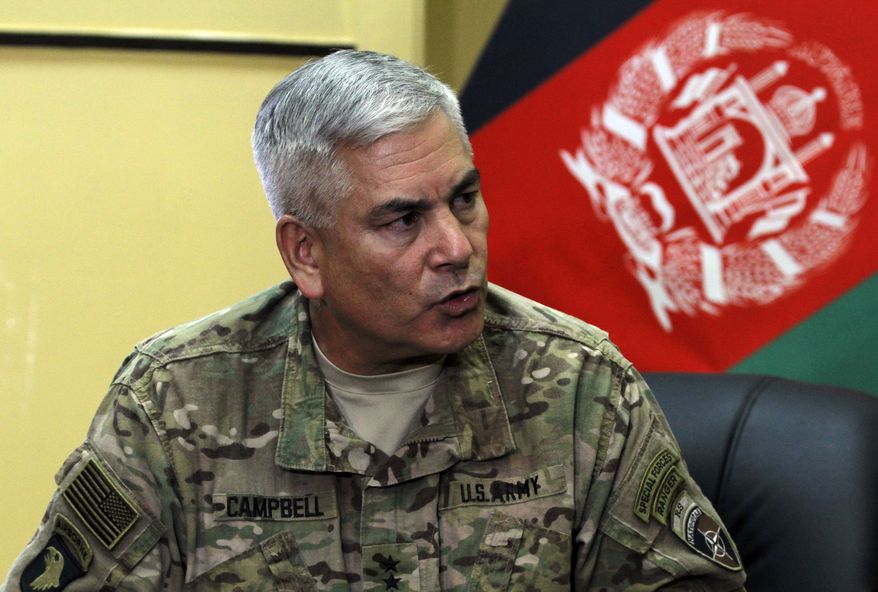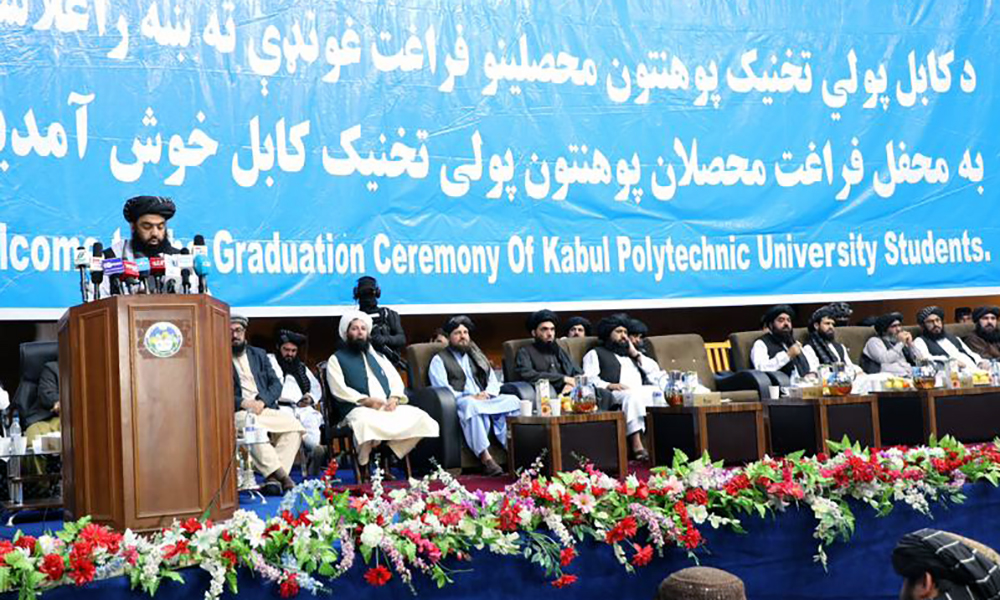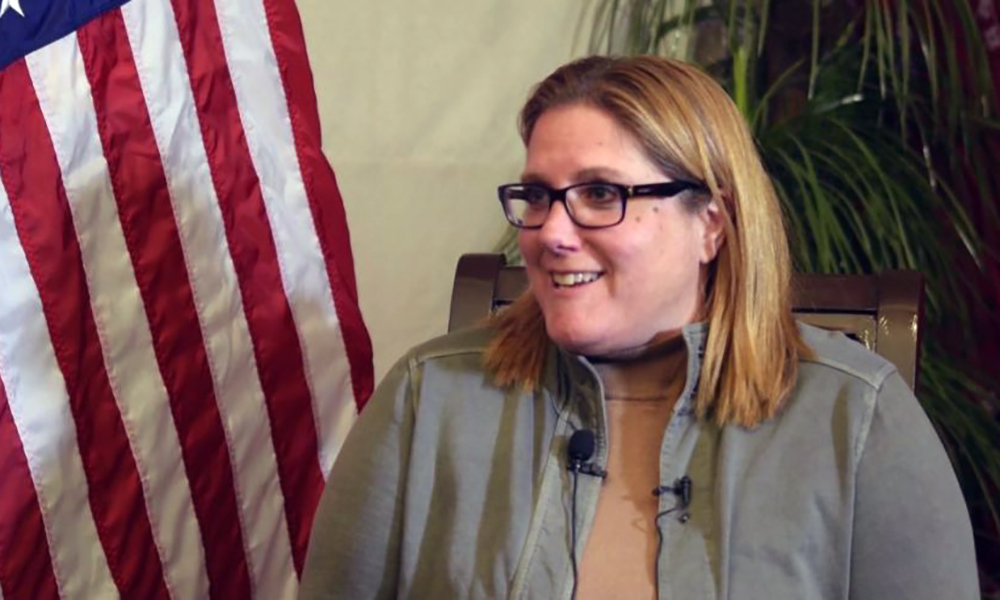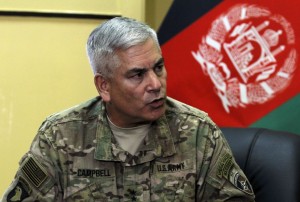Latest News
More troops may be needed in Afghanistan: Gen. Campbell

The top US and Nato military commander in Afghanistan may seek additional American troops to help local forces as they struggle to contain the Taliban insurgency, according to reports.
Army Gen. John Campbell said in an interview with USA TODAY that maintaining the current force of 9,800 U.S. troops to train Afghan forces and conduct counter-terrorism raids is vital, and that the scheduled reduction to 5,500 by Jan. 1, 2017, should be put off as long as possible.
“My intent would be to keep as much as I could for as long as I could,” Campbell said by telephone from Kabul. “At some point it becomes physics. I’m going to have to get them out.”
News from Afghanistan in 2015, when American troops ended their daily combat mission after 14 years, has been grim.
Taliban insurgents stormed the northern provincial capital of Kunduz in October and were pushed out after fierce fighting that included an inadvertent attack by a U.S. warplane on hospital that killed 42 civilians.
In the south, Taliban insurgents have battered Afghan troops in Helmand province; an al-Qaeda training camp was also discovered there and destroyed.
Islamic State fighters have set up outposts in the east. Last week, six U.S. airmen were killed by a suicide bomber outside Bagram Air Base.
The Pentagon’s own quarterly assessment of security in Afghanistan this month noted that in “the second half of 2015, the overall security situation in Afghanistan deteriorated with an increase in effective insurgent attacks and higher (Afghan security force) and Taliban casualties.”
Campbell will be Washington soon to brief senior leaders on the security situation in Afghanistan and troop levels required for their missions. He declined to offer specifics on his recommendations, saying they were classified.
“Some of them will not go over well with people,” Campbell said. “Some of them will get approved.”
In October, President Obama announced that he was reversing his decision to withdraw all but embassy personnel by the end of 2016. Instead, 9,800 U.S. troops will remain through most of 2016. After that, the residual force of 5,500, Obama said, will be a key part of a counter-terrorism network stretching west into Africa.
The long-term U.S. commitment by Obama encouraged Afghan leaders, troops and neighboring Pakistan, Campbell said. Still, Campbell said he won’t hesitate to ask for more troops for Afghanistan if necessary. He has commanded all NATO forces there since Aug. 2014.
“My job as commander on the ground is to continually make assessments,” Campbell said. “Every time I’ve gone to the president and said, ‘I need X,’ I’ve been very, very fortunate that he’s provided that. So he’s been very flexible. It’s actually been conditions based as we’ve gone forward.
“If I don’t believe that we can accomplish the train, advise and assist and the (counter-terrorism) missions, then I owe it to the senior leadership to come back and say, ‘Here’s what I need.’ If that’s more people, it’s more people.”
Campbell is a highly regarded officer and former vice chief of staff for the Army. If he does ask for more troops, he’ll have high-profile allies on Capitol Hill, including Rep. Mac Thornberry, the Texas Republican and chairman of the House Armed Services Committee.
Thornberry called the troop level of 9,800 “a political number to make sure we were under 10,000.” If more U.S. troops are needed, and if they need greater leeway in prosecuting the war, Campbell should have them, Thornberry said in an interview.
“The sheer lack of numbers as well as the restrictions our folks are put under handicap our efforts,” Thornberry said.
Earlier this year, U.S. troops were stretched so thin that they advised their Afghan partners by video conference, Thornberry said. He said he’d rely on commanders for a recommendation on troop levels, adding that they had sought as many as 20,000.
“Nobody is looking to re-insert 100,000 combat troops,” he said.
Michael O’Hanlon, a military analyst at the Brookings Institution who recently traveled to Afghanistan, said a contingent of 12,000 U.S. troops would be able to advise Afghan forces involved in the toughest fights and to battle terrorists. At that level, in teams ranging from dozens to hundreds, U.S. troops could provide the sort of expertise they offered Iraqi forces in retaking Ramadi this week from Islamic State fighters, he said.
In any event, O’Hanlon doesn’t expect decisions so soon after Obama agreed to the October commitment of troops that will extend into the next administration.
“The next president is still going to be in Afghanistan,” O’Hanlon said. “We should think of it as shoring up the eastern flank in the fight against extremists.”
The news from Afghanistan is not all dire, Campbell said. He cited some signs of progress: the number of high-profile suicide bombings that killed or wounded people dropped 36% from 262 in 2014 to 168 in 2015.
“When I drive around Kabul, it’s busy,” he said. “Traffic is almost as bad as Washington, D.C. All the stores are open. It’s still a vibrant city.”
For 2016, Campbell has issued four challenges to Afghan troops, he said. First, they need to drive down attrition by creating a system that allows troops to train, fight and rest to drive down rates. The Afghan military also needs to move from manning checkpoints to taking the fight to the Taliban. Finally, military brass needs to root out bad commanders and do a better job recruiting.
“I think this will drive the Taliban to the peace table,” Campbell said. “If they don’t do those things, it’s going to be a tough fighting season.”
The stakes for the Afghans and the United States couldn’t be higher, he said.
“If we don’t stay engaged here to build their capacity to fight this, keep sanctuary down, it’s coming back to the homeland,” Campbell said. “So it’s pay a little bit now, build the capability, and keep this an away game as opposed to a home game.”

Latest News
Save the Children sends plane with 92 tonnes of medicines to Afghanistan

A plane carrying 92 tonnes of vital medicines has arrived in Afghanistan to treat about 675,000 people, including children, with life-threatening but treatable illnesses after an increase in respiratory infections and measles this year, Save the Children said on Tuesday.
The consignment – the largest delivered by Save the Children in a year – will provide lifesaving treatment for nearly 400,000 children afflicted by endemic childhood illnesses such as respiratory tract infections, pneumonia, acute watery diarrhoea, and skin diseases, the organization said in a statement.
Since the beginning of 2024, more than 1,000 children under the age of 5 have died after contracting pneumonia, comprising 88% of all deaths from respiratory infection.
The current number of cases is higher than the average number reported during the past three years, according to the World Health Organisation.
The number of measles cases among children under five has risen by 44% compared with the same period last year, the statement said.
“Too many children in Afghanistan die from easily preventable diseases and illnesses. The arrival of these medicines means that more than 400,000 children will receive potentially lifesaving treatment in some of the most remote areas of the country,” said Arshad Malik, Country Director for Save the Children in Afghanistan.
He added that every day around the world, roughly 16,000 children under the age of 5 will die from common illnesses that can be prevented and treated.
The medicines, which are worth about US $590,000, were donated by the Dutch Relief Alliance (DRA), the European Union Humanitarian Aid (ECHO), the German Federal Foreign Office (GFFO), USAID’s Bureau for Humanitarian Assistance (BHA) and Save the Children’s internal Humanitarian Fund, among other organisations.
Latest News
Kabir reiterates IEA will not give in to international pressure

Mawlavi Abdul Kabir, the political deputy prime minister, said on Tuesday that the Islamic Emirate will not give in to international pressure and will not take orders from any country.
Speaking at the graduation ceremony of Kabul Polytechnic students, Kabir said that transit within the region is not possible without Afghanistan and that the government is working on the issue.
Kabir also said the Islamic Emirate of Afghanistan (IEA) is working on the implementation of projects and on developing the mining sector.
He also emphasized the need to provide conditions for the return of immigrants to the country.
The Islamic Emirate’s minister of Propagation of Virtue and Prevention of Vice, Mohammad Khalid Hanafi, also spoke at the event and said the IEA is not against the development of modern sciences in the country, but that Western countries are spreading negative propaganda against the Islamic Emirate.
Nada Mohammad Nadim, Acting Minister of Higher Education, also emphasized that the Islamic Emirate was victorious on the battlefield and will also win in the field of economy, health and education.
On the other hand, some officials of the Ministry of Higher Education said that the ministry is trying to make progress in the direction of scientific and educational expansion and to be equal to global standards.
Over 530 students graduated from seventeen departments of this university, and their graduation certificates were presented by the authorities of the Islamic Emirate.
Latest News
US shows greater willingness to engage with the IEA

Washington is willing to move towards greater engagement with the Islamic Emirate of Afghanistan (IEA) as it seeks to tread a fine line between its human rights concerns and helping the Afghan people, interviews with top US officials and senior aid figures reveal.
Speaking to The New Humanitarian on the sidelines of a donor meeting in Istanbul last month, Karen Decker, chargé d’affaires of the US mission to Afghanistan, said Washington has “learned the hard way that isolation is ruinous. It’s ruinous for the Afghan people. It’s ruinous for the region”.
In the past year, the UN, several international and local NGOs, and Washington have all signaled that avoiding the Islamic Emirate won’t solve Afghanistan’s economic and humanitarian issues, The New Humanitarian reported.
This comes despite the IEA still refusing to allow girls and women to study beyond the sixth grade.
Decker told The New Humanitarian that Washington is now in a position where it must “very carefully navigate the non-recognition policy”, which requires a delicate balance of keeping in mind that the IEA took power by force rather than a democratic vote while still finding ways to reach the millions of Afghans who require emergency assistance.
One NGO source, who asked to remain anonymous, was quoted as saying by The New Humanitarian that “engagement [with the IEA] is necessary, but we have to find a way to balance engagement while not compromising on our principles.”
Decker agreed, saying Washington would continue to engage with the IEA on “pragmatic issues”, with humanitarian assistance and human rights being her primary areas of concern.
Because its non-recognition policy precludes US officials from working in the country, Washington has partnered with local and international groups on the ground to deliver assistance directly to the Afghan people.
But even with that cooperation, it’s not always so easy, as these groups must also tread carefully amid increasing IEA restrictions and regulations, The New Humanitarian reported.
Even though there is still a long way to go, particularly in terms of addressing US human rights concerns, Decker told The New Humanitarian she feels Washington’s efforts have led to some positive results.
“Eighteen months ago, we were worried about famine, and there is no famine in Afghanistan,” Decker said, crediting this largely to the work of local and international aid organizations.
However, she pointed out that Afghans still need more food assistance than in the past: “So, in some respects, you trade one problem for another.”
Decker raised another issue that adds to the difficulty of engaging further: the Islamic Emirate’s unwillingness to acknowledge any problems in the country: “They like to present Afghanistan as a success story… [and] they don’t want anyone thinking there’s anything wrong.”
She said if the Islamic Emirate were more straightforward to deal with, then humanitarian actors would save a lot of time and money and be able to reach those in need more quickly.
“We use a lot of time and effort making it work, because of the Taliban (IEA). They are fundamentally the challenge to making this work. We are able to navigate [it], but it would be much more efficient if the Taliban were much more [open].”
Decker did, however, give the Taliban some credit, saying they had shown some flexibility, especially in emergency situations.
She pointed to the Islamic Emirate’s responses to a series of earthquakes that rocked the western province of Herat, and the recent mass expulsions of hundreds of thousands of Afghans from neighboring Pakistan, as examples of when the IEA saw it necessary to amend or loosen some of their restrictions, The New Humanitarian reported.
“Women were suddenly allowed to work because they had to reach women beneficiaries,” she said.
While engagement efforts have sparked widespread criticism, all the sources The New Humanitarian spoke to said they saw little benefit in pretending the Islamic Emirate does not exist.
With an “overwhelming need in the country”, simply ignoring the IEA will do nothing to improve the lives of the millions of Afghans who remain in need, said Decker.
“It’s not in anyone’s interest for us to isolate the country,” she added. “And I say this over and over: I feel strongly that if the United States does not advocate for the Afghan people, nobody will. So, I don’t need any more motivation than that.”
The New Humanitarian reached out to the Islamic Emirate’s Ministry of Foreign Affairs for comment on several matters related to the issue of engagement, but it failed to respond.
Decker and other sources did however, express some hope based on private meetings and the public statements of several high-ranking Islamic Emirate officials, who have acknowledged that all girls and women should be allowed to return to school and that the government must expand beyond just the IEA.
“We know that there [are] senior Taliban leaders who have their daughters in school outside of the country, and some of them have even been open in their own statements about the importance of education,” said Decker.
However, for progress to be made towards US recognition, she said the Islamic Emirate must officially change some of its policies, pointing to increased work opportunities for women and real inclusion of non-IEA members in the government as concrete examples of possible game-changers.
-

 Sport4 days ago
Sport4 days agoAfghanistan beat Iraq 5-3, inch closer to Futsal World Cup berth
-

 Latest News5 days ago
Latest News5 days agoEU allocates 17 million euros to support Afghans on the move
-

 Regional5 days ago
Regional5 days agoNew UK sanctions target Iranian drone industry
-

 Latest News4 days ago
Latest News4 days agoPakistan extends registered Afghan refugees’ stay till June 30
-

 Regional4 days ago
Regional4 days agoChina to host Hamas, Fatah for Palestinian unity talks
-

 Sport3 days ago
Sport3 days agoAfghanistan qualify for FIFA Futsal World Cup for first time ever
-

 Latest News4 days ago
Latest News4 days agoTripartite trade meeting held in Kabul to boost regional connectivity
-

 World4 days ago
World4 days agoIn Beijing, Blinken meets Xi and raises US concerns about China’s support for Russia















